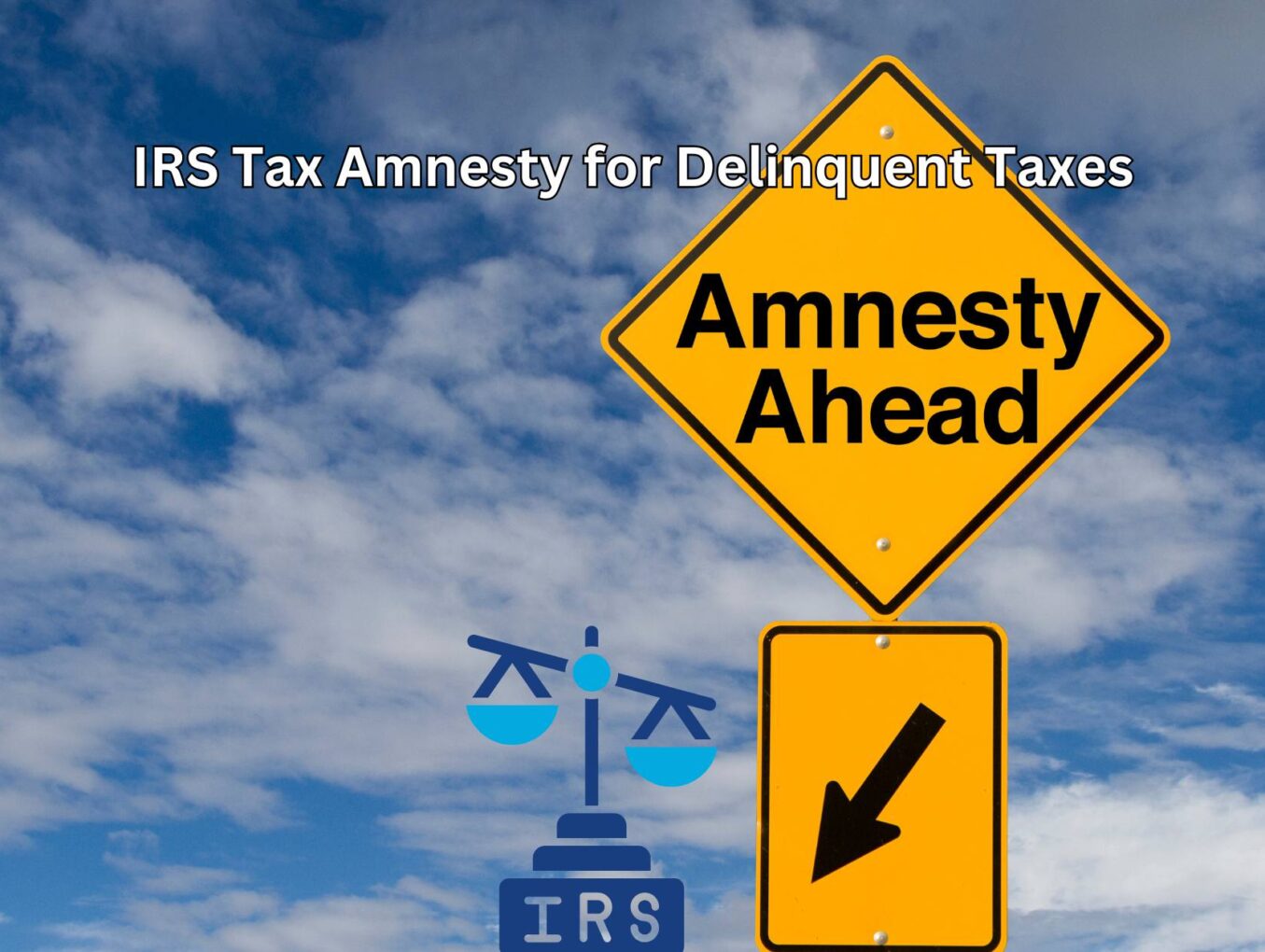What are the IRS Tax Amnesty Programs?
Tax amnesty refers to programs the IRS offers encouraging non-compliant taxpayers to pay unpaid taxes. These programs usually require taxpayers to pay off tax debt, but penalties and interest may be reduced or removed.
Tax amnesty is sometimes used interchangeably with tax forgiveness, which can also refer to other IRS tax relief programs available, such as an Offer in Compromise.
Examples of IRS Tax Amnesty programs include:
- Streamlined Filing Compliance Procedures (intended for individuals who were unaware of their filing obligations and failed to file US tax returns)
- Delinquent FBAR Submission Procedures (for individuals who failed to file required Foreign Bank Account Reports)
- Relief Procedures for Certain Former Citizens (individuals who renounced US citizenship to comply with US tax obligations without paying significant penalties)
What Do You Need to Qualify for Amnesty?
In addition to filing all outstanding tax returns before applying for amnesty, you must:
- Pay a portion of your tax debt
- Meet specific income requirements for amnesty programs with income eligibility restrictions
- Have no history of being investigated or audited by the IRS. Previous tax examinations, audits, or other IRS actions may disqualify you for amnesty
Also keep in mind that IRS tax amnesty programs each have different qualifying requirements. For example, the Delinquent Foreign Bank Account Report (FBAR) Submission Procedures program is intended for taxpayers who have not reported foreign bank accounts exceeding $10,000.
Does Amnesty Reduce IRS Penalties and Interest for Back Taxes?
Yes, tax amnesty programs typically reduce IRS penalties and interest for unpaid back taxes. The specific amount of a reduction depends on a program’s terms and the taxpayer’s circumstances for requesting amnesty.
However, taxpayers interested in requesting amnesty from the IRS should know that while such programs help reduce tax debt, they may not erase it altogether.
The IRS may still insist you pay what is left of your back taxes after penalties and interest have been reduced.
How Do Tax Amnesty Programs Differ from Tax Relief Programs like Offer In Compromise?
Tax amnesty and tax relief programs are both intended to help taxpayers resolve tax debt.
Tax relief, such as installment agreements and Offer in Compromise, offers a permanent solution to pay off tax debt, whereas tax amnesty programs are intended to be a temporary solution to reduce penalties and interest.
Additionally, to qualify for a tax relief program, taxpayers need to show the IRS that they are experiencing financial hardship, long-term unemployment, or other qualifying reason.
Tax amnesty programs are typically available to many taxpayers regardless of financial situation.
Finally, as mentioned above, tax amnesty programs are temporary initiatives that benefit taxpayers who have failed to file tax returns or pay taxes on time.
These programs are also time-limited, meaning a taxpayer must seek amnesty before it expires. It is not available indefinitely.
Missing the deadline for a tax amnesty program may result in the IRS requesting that a taxpayer pay the total penalties and interest that have accrued on tax debt.
If that happens and a taxpayer cannot pay the back taxes plus penalties and interest, they may need to apply for tax relief help.
Are You Eligible for Tax Relief If the IRS Grants You Amnesty and You Still Owe Taxes?
Yes, even if you are granted amnesty for penalties and interest, you may still be eligible for additional tax relief if you cannot pay your remaining taxes due to financial hardship.
Programs like Offer in Compromise or installment agreements may help you pay off your tax debt without increasing your financial difficulties. When you resolve your tax debt with amnesty and tax relief, you must stay compliant with tax obligations, such as filing your taxes on time and making payments as soon as they are due.
You may be more likely to be audited in the future if you are non-compliant with filing returns and paying taxes you owe.
Need more help? You can start online by answering 6 simple questions.
6 Simple Questions. Free Evaluation.

